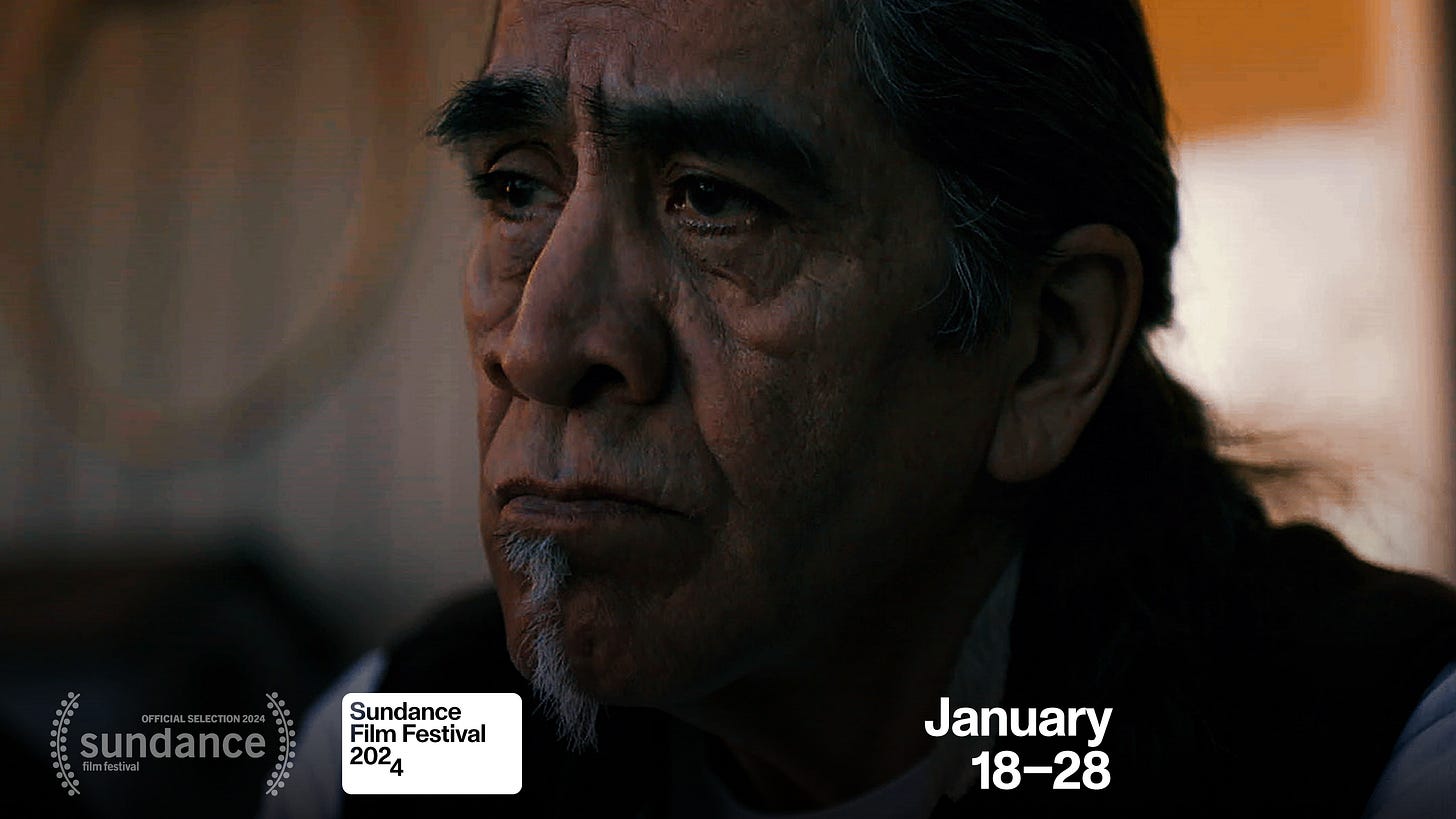Weyt-kp (Hello)!
I’m writing with exciting life news.
Tomorrow, Saturday, January 20 at 2:45 pm Mountain Time my debut feature documentary, SUGARCANE, will premiere at the Sundance Film Festival. SUGARCANE follows an investigation into abuse and missing children at the Indian residential school my family was sent to near Williams Lake, British Columbia and the reckoning that search ignites on the nearby Sugarcane Indian Reserve and surrounding Indigenous community.
It’s an incredibly personal project. As a true believer in the power of origin stories, I want to share the origin of SUGARCANE with you.
In 2021, after the discovery of hundreds of potential unmarked graves of students in the apple orchard of the Kamloops Indian Residential School, my friend and colleague Emily Kassie called to say she wanted to collaborate on a documentary.
Emily and I sat next to each other at the Huffington Post. (She was Creative Director of HuffPost’s online magazine, Highline. I was the Native Issues Fellow—little more than a summer intern.) Emily has had a remarkable career since then, reporting on atrocities and human rights abuses around the world for The New York Times, The Marshall Project and Frontline, among others, and is the youngest-ever winner of a National Magazine Award, which she’s won not once but twice. Emily grew up in Toronto and started kindergarten the same year the last residential closed in 1997. But she never learned this history—my history—in school. A Jew raised with familial and cultural memories of the Holocaust, she felt, in her words, “gut-pulled” to tell this story about the genocide perpetrated by her home country.
When Emily called, I was just starting to write my first book, We Survived the Night, which I will submit to Alfred A. Knopf next month. At the time, I didn’t know how to write a book, much less direct a documentary. So, I told Emily I had to think about it.
What I didn’t tell her is that I was hesitant to touch this story at all. Because my family, like many other Indigenous families, has an intimate and painful connection to the residential schools. We don’t talk about any of it.
In the interim, Emily, or “Emmy” as I now call my dear friend and collaborator, pressed on. Scouring the news, she found a First Nation just starting to open an investigation at an Indian residential school in British Columbia. She phoned the chief of that community. His name is Willie Sellars. When he picked up, Willie said, “The Creator has always blessed me with good timing.” The day before Emily called, Chief Willie and his council had discussed the need to document their search. They granted Emily and the documentary exclusive access to follow it.
Two weeks later, when I called Emmy back and said I’d be open to collaborating, she told me the First Nation was the Williams Lake First Nation and the school was St. Joseph’s Mission.
There was a long pause. “That’s crazy,” I said. “That’s where my family was sent and where my father was born…and abandoned.”
Of 139 Indian residential schools across Canada, Emily happened to choose the school that still looms over the life of my family, my father and myself.
She and I have spent the better part of the last three years in Williams Lake and surrounding Indigenous communities in the Cariboo region of British Columbia making our film, SUGARCANE. Emily as director, producer and cinematographer, and me as director and subject, alongside my father and community.
It’s an intimate and epic cinematic portrait of my people in the moment when the spirits of our missing children started to come home. It was made with a lot of love and a little bit of magic—at least that’s how I interpret this filmic origin story.
I can’t wait to share it with you and the world.
Online:
JAN 25, 8:00 AM MST - JAN 28, 11:55 PM MST
In Person:
JAN 20, 2:45 PM MST - Library Center Theatre, PARK CITY
JAN 21, 3:15 PM MST - Redstone Cinemas 7, PARK CITY
JAN 22, 5:00 PM MST - Broadway Centre Cinemas 3, SALT LAKE CITY
JAN 25, 9:30 AM MST - Holiday Village Cinemas 2, PARK CITY





I just watched Sugarcane in Williams Lake, and I was deeply moved. Many thanks to you and Emily for creating this incredible documentary. I grew up in 100 Mile House, near Canim Lake. I can see why the film won directing awards at Sundance, it is a piece of art. I hope that many people will watch it and that its message will spread like wildfire (in a good way). Thank you for your courage.